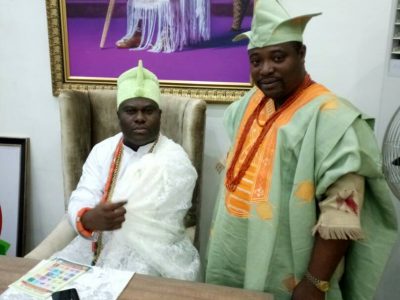
ウクライナの作家アンドレイ・クルコフ 使用許可取得済
グローバル・ボイスは国外への翻訳も多いウクライナの作家アンドレイ・クルコフにインタビューを行った。クルコフの小説はロシア語だが、2022年2月のロシアのウクライナ侵攻以降は、ロシア語で書くことができずにいる。
クルコフは日本語を専攻し翻訳の教育を受けたのち、ウクライナのオデーサの刑務所看守を務め、1991年のソ連邦崩壊の年に最初の小説を出版した。エッセイ、記事、児童書、脚本と多才な作家だが、小説が1番人気だ。クルコフの小説は毒気のあるユーモア、社会批判、そして人が矛盾を抱えながら生きていくことへの深い理解に満ちている。クルコフの小説は多くの言語に翻訳されている。
インタビューは英語で、オンラインで行われた。キーウは激しい銃撃下にあり、クルコフによると地下通路で眠っているそうだ。インタビューはグローバルボイスの形式に合わせて書き記している。
フィリップ・ヌーベル (FN):最近英語でも出版されたあなたの小説「Grey Bees(灰色のミツバチ)[英], [日]」には、ある村に住む年老いた男2人が登場します。2人は2014年のウクライナ東部の戦争を体験しています。戦争のことを語るには、創作物である物語が1番でしょうか。例えば新聞やテレビのようなマスメディアと比べてどうでしょう。
Andrei Kurkov (AK): Before 2013 I travelled extensively in the Donbas region in Eastern Ukraine and this book is more about attitudes specific to that part of the country. Ukraine is huge, and each region has its own mentality. So this novel reflects some the archetypes present in Donbas mentality, such the reluctance to travel outside of their region. I remember once asking an older man there if he had ever traveled abroad, and he said: ‘No I never traveled abroad, I only went to Moscow.’ This illustrated for me the fact that subconsciously, for people of this generation, the Soviet life goes on, and thus Moscow is not considered to be part of a foreign country. But it also also echoes Soviet arrogance toward other formerly Socialist countries: A popular russian saying that stated back then: ‘Курица не птица, Польша не заграница‘ — that is, ‘A chicken is not a bird, and Poland is not abroad.’
In this novel I also wanted to show that people's attitude are often very accidental. There was no ideology after the fall of the Soviet Union in 1991, people became very passive politically speaking, and often aligned with the local mafia structures when asked to vote. Also, Russia has supported and financed deep nostalgia for the Soviet period. People in Donbas have been constantly reminded how life was much better before 1991 — even though it is not the case. In fact, people simply revisit a time when they were young, so it all seems a happier period in retrospective. In a way, this book is about the reluctance to make a choice, to fully understand the politics of life.
アンドレイ・クルコフ (AK): 2013年になる前、私はウクライナ東部のドンバスの各地を旅したことがあります。「灰色のミツバチ」ではウクライナでも当地の人だけが抱く思いに多くのページをさきました。ウクライナは広大で、場所により人々の考えはまるで異なります。ドンバスでは多くの人が地元から外に出たがらないのですが、そんなドンバス気質に満ちた当地の人たちを小説では書き表しました。老人と話した時に「外国に行ったことがあるか」と尋ねると、「外国に行ったことはない。行ったのはモスクワだけだ」と語っていました。この地で、この世代の人たちの頭の中では、意識的ではないにせよソビエト時代がまだ続いており、モスクワは外国ではなく、まだ国内なのです。しかし、それはソビエトが元社会主義の属国に示してきた横柄さの残余とも言えます。昔からロシアでは「Курица не птица, Польша не заграница[露](鶏は鳥ではなく、ポーランドも外国ではない)」と言います。
人々の意見や考えは、偶然に左右され易いことも、この小説で伝えたかったことです。1991年のソ連邦崩壊後、政治的信念というものはなくなり、人々は政治に対して非常に受身的に、選挙の投票でも地元の有力者の要望に従うようになりました。そして、ソビエト時代を懐かしむ人々の気持ちにうまく取り入るように、ロシアは資金面も含めて積極的に動きました。1991年以前のソビエト時代の方が、今よりずっと良かったと錯覚するように、ドンバスの人々の心を仕向けたのです。実際には、人は自分が若かった時代を回想すると、その時代が輝いて幸福に見えるだけなのです。この本は人々が選択をさけようとする心理を通して、人と政治の関係全体を理解する本です。
FN: 戦争が人に及ぼす変化を語るのに、創作物は新聞やテレビなどよりも適していると思いますか。
AK: Journalism gives fact, and must provide proof. Literature is made of human histories, so it can show their attitudes, and the effect particular events have on them. It provokes understanding and empathy, whereas journalism should lead you to analysis. But when you start analysing human lives, you forget about the human, whereas war is a purely human drama. This is the difference between statistics and the tragedy of a single person who was killed, and whose name you know.
AK: 報道は事実を伝え、それは証拠に基づかなければなりません。一方で文学は人の歩んできた歴史そのものですから、事件など何かの変化に対して、人が示す反応や変化をうまく伝えることができます。文学は理解や共感を促し、一方で報道はその事象の分析を促します。人命について言うならば、分析開始時点で、それはひと1人の命であるという視点が失われています。そして戦争とは実に人の命が左右されるドラマなのです。自分の知っている人が戦争で殺されたと言う現実と、戦争でひとが何人死んだという統計データは違うと言うことです。
FN: 戦時下のキーウにいながら、別の戦争について書けるものですか。
AK: I haven't been able to write fiction since February 2022 [the start of Russia's full-scale invasion of Ukraine], I tried several times to come back to my unfinished novel, but have failed so far. I do write articles, and essays but less. Partially, this is because I am tired, but also because there is less demand. People across the world are getting used to this idea that this war will last for a long time, and everything they wanted to know about Ukraine, they know at at this point. So new texts about Ukraine are becoming less political because the politics of this war are very well known.
But we will have a huge cultural gap because of the war. And not just because writers are being killed or serve as soldiers and don't have time to write. But also because many authors write fiction that borders with propaganda, because books can be weaponized. But then there is a danger that the aggressor and everything connected to it gets dehumanized. No doubt this will be an interesting topic for future philologists to study.
AK: 2022年2月に始まったロシアのウクライナへの全面侵攻以来、小説を書くことはできずにいます。今まで書いていたものの続きを書こうと、何度か試みたのですができないままです。今は記事や随筆を書いてますが、件数も少なめです。疲れてしまったし、原稿の依頼も少なくなりました。この戦争は長引きそうであり、もうウクライナで知りたいことは、今のところ全部わかったと世界の人々が思いはじめています。この戦争の政治的側面はあまりにも多くが語られたので、ウクライナについての何か新しく書くときは非政治的なものに変わっています。
けれども戦争は、私たちの文化に大きな空白をもたらすことになりそうです。その理由は、作家が殺されるとか、兵隊に行くとか、執筆する時間がなくなるからだけではありません。多くの人が自陣営の宣伝同然の、都合の良い作り話を書き始めた結果、本はある意味で武器となったからです。それと同時に侵略者とそれに関連するもの全てから人間性が失われる恐れがあります。将来、この現象は言語の歴史的変化を調べる文献学者にはきっと良い研究材料になるでしょうが。
FN: ウクライナを題材にした文学、それとニュースが、戦争の話ばかりになるのは防げますか。そうでないとこの国を戦争と言う非常に限られた視点でしか語れなくなりそうです。
AK: Almost all literature, including poetry, is now about the war. But this is also supported by the publishing industry abroad: All the books being translated from Ukrainian are about the war. Foreign publishers also request Ukrainian refugees to write books about their experiences. So now we have a new ‘refugee literature,’ yet soon those books about war and refugees will loose their appeal. Then Ukraine will need a new breakthrough with some kind of a super-novel to change all of that.
AK: 今のところ、詩をはじめすべての文学が語るのは戦争のことばかりです。これは、国外の出版業界がそれを求めているからでもあります。ウクライナ語から翻訳されている本は戦争に関するものばかりです。国外でも出版社はウクライナ難民に、本にするために自分たちの経験を書くように求めています。今、新しく「難民文学」とでも言うものが現れていますが、程なくそれらの戦争や難民に関する本は訴求力を失っていくでしょう。そうなると、全ての状況を一変させるような、非常に力のある小説がウクライナには必要になります。
FN: 現在のウクライナの出版や書店の事情を教えてください。
AK: Inside Ukraine, people read books and want to read about Ukraine and its history, particularly those written by the intellectual elite of the 30s that was eliminated during Stalinist purges, and is known as the ‘executed Renaissance’. Some bookshops are operating, they are certainly not crowded and sales are low, except if there is a reading and signing of a book. Basically, no book event means no sale. Near my place there are weekly readings of prose and of poetry in a literary cafe, something you can see in Kyiv, but also in Lviv. People are now actually preparing for the September Lviv Book Fair. A few new projects are also being organized in the west of Ukraine.
AK: ウクライナの人々は本を読んでいます。ウクライナとその歴史、「処刑されたルネサンス」として知られるスターリンの粛清で消し去られた、1930年代にウクライナの文化人が書いた本は特に求められています。開いている書店もありますが、朗読会やサイン会など催事でもないと、お客さんがたくさん入ることはなく、商売は低調です。まず何か行事をしないと本は売れません。この近辺でも毎週ブックカフェで詩や散文の朗読会を行っています。キーウだけでなくリヴィウでも人気です。今も9月に開かれるリヴィウブックフェアの準備が進んでいます。ウクライナ西部では新しい企画が何件か進行中です。
FN: 今のあなたから見て、ロシア語、それにウクライナ語について思うことは何ですか。
AK: I learnt Ukrainian in the Soviet period, and worked as a copy editor of translations of foreign novels into Ukraine. I write prose in Russian, and non-fiction in Ukrainian and English. As most bookshops do not want to sell books in Russian, it makes no sense for publishers to publish paper versions in Russian, but with e-books it is much easier).
There will be an interesting situation after the war: Unless it changes the constitution, the Ukrainian government has to guarantee the development of ‘Russian and other minority languages.’ Now of course Russian is the language of the enemy, and there is a campaign to remove it. But people still speak Russian on the streets, and in some cities, almost only Russian, like in Odesa. To be clear, speaking Russian is a social phenomenon, not an ethnic one. And yet Russia killed many Russian-speakers in places like Mariupol, so the number of russian-speakers is being reduced. Besides, many younger generation are switching to Ukrainian, and refuse to speak Russian.
AK: 私はソ連邦時代にウクライナ語を学び、外国の小説をウクライナ語に翻訳するときの校正、編集の仕事をしていました。散文はロシア語で、ノンフィクションはウクライナ語と英語で書きます。どの書店でもロシア語の本は置きたがらないので、紙の本をロシア語で出す意味はありません。でも電子書籍ならもっと簡単に出せます。
戦争後には興味深い状況が訪れるでしょう。憲法を変えない限り、ウクライナ政府は「ロシア語とその他の少数言語」の発展を保証する務めがあります。現在、ロシア語はもちろん敵国語であり、ロシア語排除の動きがあります。しかし、道行く人々は依然としてロシア語を話しており、オデッサのようにロシア語が圧倒的に優勢な町もあります。簡単に言うと、何々民族だからロシア語を話すのではなく、ウクライナ人の何割かはロシア語を話す人々だと言うことです。ロシア軍はマリウポリやほかの町で、ロシア語を話す多くのウクライナ人を殺しましたから、ロシア語話者の数は減少中です。それに若い世代ではウクライナ語だけを使い、ロシア語は話さないようにしている人たちもいます。
グローバルボイスでロシア、ウクライナをカバーしている記者が、2022年2月以降の自分とロシア語の関係について語ります。こちらもぜひお読みください。
「ロシア語を話すウクライナ人の話は聞きたいですか? 」
「ウクライナ戦争で言葉を見失いかける話 」






